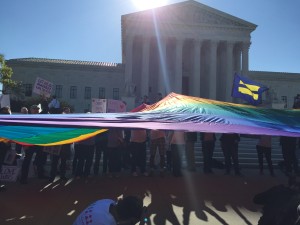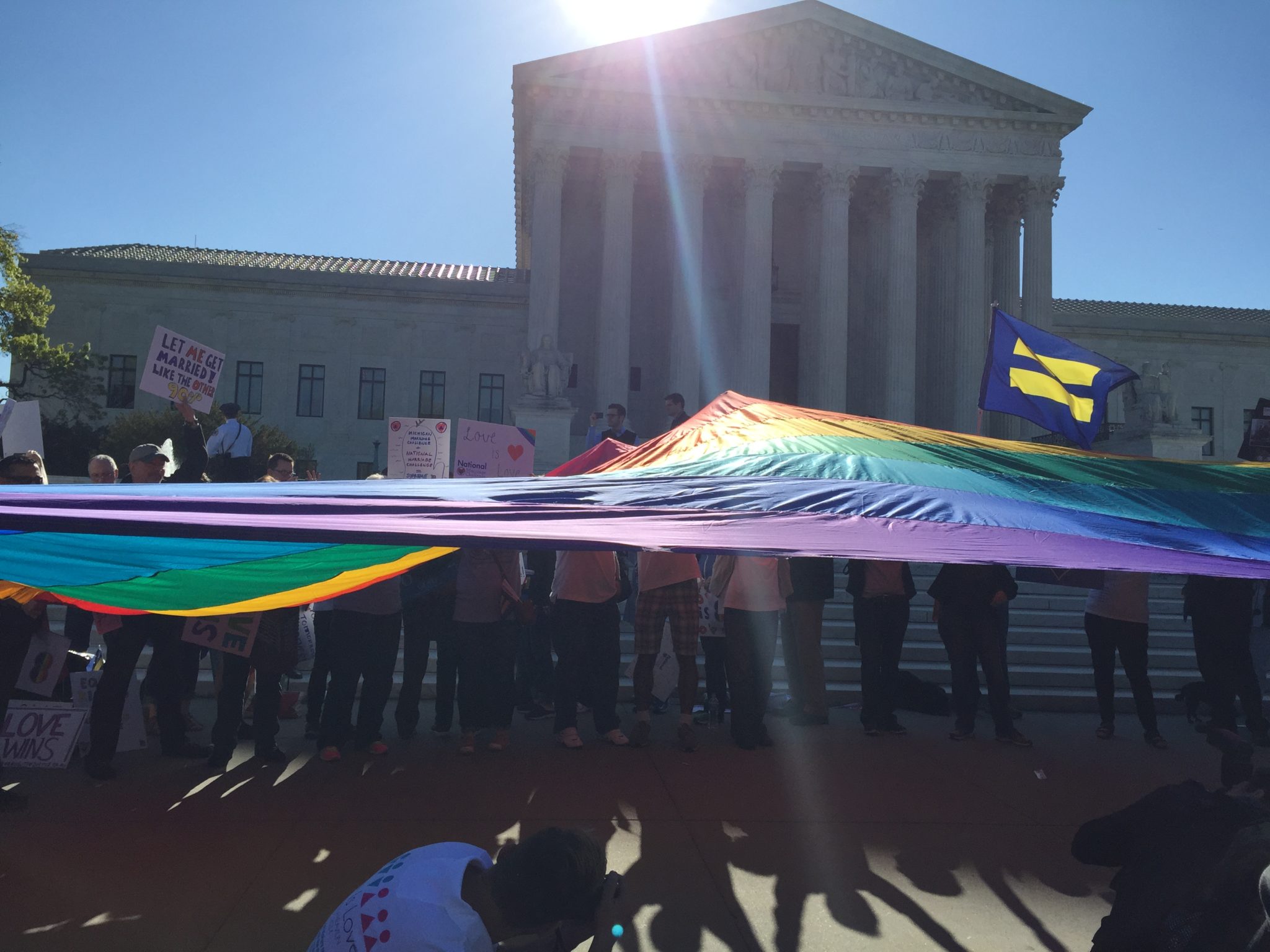 There has been celebration across the land following the Supreme Court’s decision to end marriage inequality. The news is filled with stories about the historic decision, and Facebook is filled with more than 26 million rainbow-hued profile pictures. Everyone seems to want to join in the “celebration of love” now that gays and lesbians are free to marry in every state in the country.
There has been celebration across the land following the Supreme Court’s decision to end marriage inequality. The news is filled with stories about the historic decision, and Facebook is filled with more than 26 million rainbow-hued profile pictures. Everyone seems to want to join in the “celebration of love” now that gays and lesbians are free to marry in every state in the country.
When the decision was announced, my memory took me back to a conversation I had on the day the case was argued. Demonstrators on both sides of the issue were gathered on the sidewalk in front of the Supreme Court. As I wandered through the crowd, I spotted a middle-aged woman standing alone and struck up a conversation. She said she was from Arkansas, and had traveled to D.C. alone because this case was so important to her.
“This case could totally change my life,” she said with tears in her eyes. I have lost everything since I came out a couple of years ago. My former husband got sole custody of our children, and most of my friends have abandoned me. “We love you,” they told me, “but we can’t support your lifestyle.”
I can’t help but wonder how she is feeling today. I hope this decision will give her some leverage in her custody battle with her ex-husband. But I don’t imagine it has instantly changed the hearts of minds of the friends who abandoned her because of her sexual orientation.
On a personal level, I would love to believe that with the stroke of a pen, the Supreme Court could end decades of discrimination against gays and lesbians. I had to marry in another state, and spend thousands of dollars on legal fees to protect the economic and familial rights that other married couples take for granted. Now, I can move anywhere in the country and my rights as a married person will have to be respected by law.
But does that mean LGBT people can feel safe walking down the streets? Do parents still have to fear for their LBGT children when they send them off to school in the morning? Will this decision mean the beginning of the end of discrimination in housing, lending and employment for LGBT Americans?
Unfortunately, based on history and the outpouring of negative reactions to the decision, I believe we have to accept that this is just one step forward in a long struggle for equality for the LGBT community.
Why would we believe that that a good legal decision could mean the end of discrimination, when 50 years after the Civil Rights Act of 1964, a terrorist can kill nine African Americans in a historically black church in Charleston, SC — followed by at least six fires in African American churches across the country?
Why would we believe that the law can change hearts and minds when Republican politicians greeted the decision with statements bordering on hate speech. Just a few examples … Sen. Ted Cruz said it was “the darkest 24 hours in our nation’s history.” Huckabee said the Supreme Court “tried to unwrite the laws of nature.” Santorum said stopping gay people from marrying was about “the survival of our country.”
Why would we believe that LGBT people will now be safe, when the Southern Poverty Law Center (SPLC) says that: “The bullying of LGBT students is a severe, nationwide problem – one made more difficult by the reluctance of many school districts to take strong steps to prevent it. ” A survey by the Gay, Lesbian and Straight Education Network (GLSEN) found that nearly nine out of 10 LGBT students have experienced harassment, and a SPLC analysis of FBI hate crime data found that LGBT people are far more likely to be victims of a violent hate crime than any other minority group in the United States.
I join the millions today celebrating Justice Kennedy’s courageous opinion in Obergefell v. Hodges, and I encourage everyone to read his inspiring words. I thank the members of the LGBT community, supporters and allies who carried on the struggle, often at great expense to themselves At the same time, I join with all those who continue to face inequality and discrimination in the United States to continue the struggle.
For, as President Obama stated in a moving speech celebrating the decision:
And this ruling is a victory for America. This decision affirms what millions of Americans already believe in their hearts. When all Americans are treated as equal, we are all more free.


